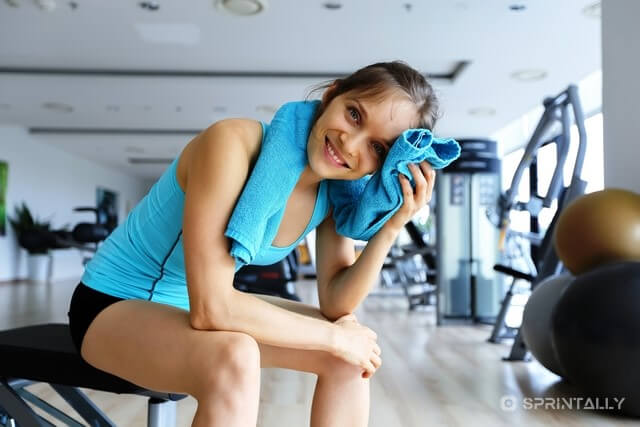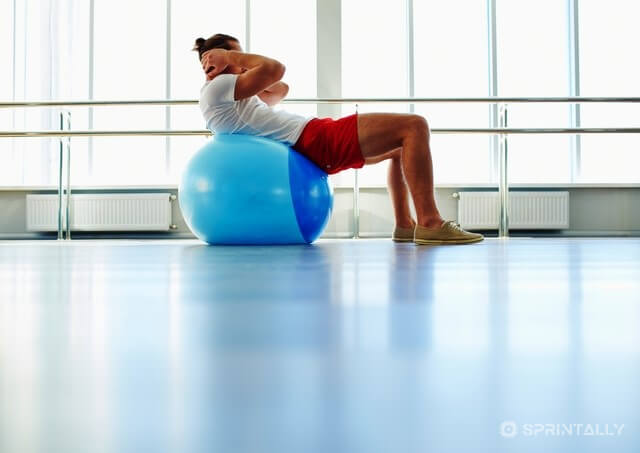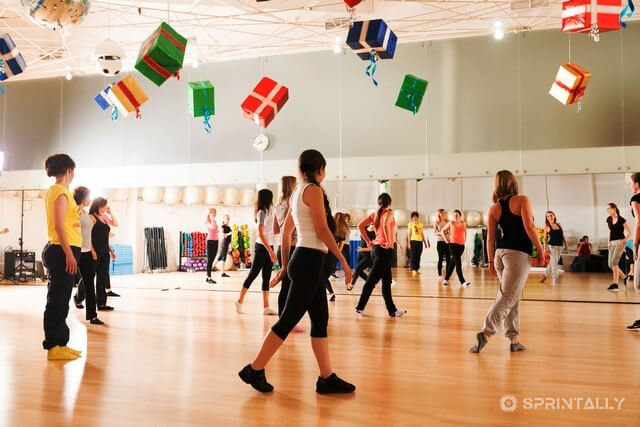Sweating: some people do everything not to sweat. Even when they train, they do not lay out completely, so as not to sweat a lot. But sweating, in fact, is good and even good for health. Regardless of whether you exercise, sit in a sauna or walk, sweat heals the body. There are at least 8 reasons why you really need to sweat every day.
But if you suffer from excessive sweating, you need to consult of a specialist.
Detoxification
In recent years, a huge amount of research has emerged that speaks of the ability of sweat to detoxify the body. Sweating, our body is cleared of all types of toxins, heavy metals and persistent organic pollutants.
Heavy metals
Many ordinary things of our surroundings contain toxic metals — this refers to the foods we eat, the water we drink and the air we breathe. According to numerous studies, some metals can lead to serious health problems.
When the body has accumulated too much of these substances, it can cause pain in the joints and muscles, fatigue, headache, constipation, etc. Sweating helps solve this problem. Studies have shown that sweat contains 24 times more cadmium, 19 times more nickel, 16 times more lead, and almost 3 times more aluminum than in urine. It turns out that sweat is more effective than urine to remove most heavy metals from the body.

Bisphenol-a
bisphenol-a or BPA as it is often called is considered an endocrine disruptor — a chemical that mimics estrogen. It was discovered that its presence leads to many potential negative consequences, including infertility.
Researchers at Brigham and Women’s Hospital in 2013 published results that demonstrated that the effects of BPA affect endocrine function, the hypothalamus and the pituitary gland. Experts have suggested that this type of action can affect puberty and ovulation and lead to infertility. BPA is also associated with breast and prostate cancer, heart disease and diabetes.
When scientists examined the blood, urine and sweat of volunteers for the presence of BPA, out of 20 samples of sweat collected 16 contained BPA. 14 urine samples and 2 blood samples also tested positive for the toxin. This means sweating helps remove BPA from the body.
Phthalates
Phthalates are present in plastic products and are toxic chemicals that are eliminated by sweat. They are known to interfere with the production of the male hormone testosterone and are associated with reproductive abnormalities. They are also on the list of toxic substances that are known to cause birth defects.
A 2003 study published in Environmental Health Perspectives states that environmental levels of phthalates are associated with changes in the integrity of DNA in human semen. Sweat is the best way to get rid of this toxic chemical. One study showed that the concentration of phthalates in sweat was more than 2 times higher than in urine.

Persistent organic pollutants (POPS)
Studies show that POPs, which include insecticides, fumigants and solvents, are also potentially dangerous, and many of them adversely affect health. Even low levels of POPs can lead, in particular, to problems of the immune system, higher risks of cancer, reproductive disorders, neurobehavioral problems, endocrine disruption and an increase in birth defects.
When testing participants for POPs, a clinical study showed that sweat samples contained almost all of the pesticide precursors, which indicates that sweating is highly effective in reducing this toxic load.
Healing
As mentioned, sweat helps us recover. In fact, science is just beginning to reveal the important role that sweat glands play when it comes to the healing of all types of wounds.

Endorphins
Because the body produces endorphins, it is possible to increase these levels of “happiness hormone” in the brain due to the sweating caused by physical exercise. It is known that exercises increase the production of endorphins. They are considered natural pain relievers because they activate opioid receptors in the brain, which helps to minimize discomfort, and can also help to induce feelings of euphoria and General well-being.
The effects of endorphins are so strong that they can be even more effective in fighting depression than antidepressants. The problem with these drugs is that they have a long list of side effects, including liver damage, insomnia, anxiety, hostility, suicidal behavior, violent behavior, weight gain, nausea, constipation, fatigue, headaches, increased risk of stroke, congenital defects and miscarriages, as well as sudden cardiac death – and this is not the whole list.
Training to sweat is the best way to get rid of constant sadness without harmful and unwanted side effects.
Prevention and slowing of Alzheimer’s disease
Studies have found that physical activity “to sweat” can slow down the progression of Alzheimer’s disease or prevent it altogether. The Cleveland Clinic study, published in the May issue of Frontiers in Aging Neuroscience in May 2014, found that exercise can help maintain a healthy brain for those with a greater risk of developing Alzheimer’s disease. The results also suggest that even a moderate amount of physical activity can help slow the progression of this terrible disease of old age.

Fighting a cold or flu
Sweating has long been recommended to speed recovery from a cold or flu, and studies have confirmed its benefit. A 2013 study, published in Proceedings of the National Academy of Sciences, found that a natural antibiotic is naturally activated in salty, slightly acid sweat.
With minor symptoms of a cold or flu, you can train to sweat, but another option is to go to the sauna. Heat will make you sweat, and high temperatures will weaken viruses.
Reduce the risk of kidney stones
Sweating helps maintain healthy kidney function by eliminating some of the salt and calcium in the bloodstream. In turn, this reduces the amount of salt and calcium in the urine, which can lead to the formation of kidney stones. At the same time, water loss caused by perspiration, regardless of whether you sweat because of summer heat or work, leads to a decrease in urine formation. Because of this, the minerals that cause the appearance of stones are deposited in the kidneys and urinary tract.
Therefore, to reduce the risk of kidney stones, it is important not only to sweat but also to drink plenty of water to avoid the opposite effect.
Memory improvement
Researchers have found that working up a sweat in the gym helps improve memory. One study from Georgia Institute of Technology found that for healthy young people, intense training for only 20 minutes can increase episodic memory and long-term AKA memory by as much as 10%.
For this fit any workout that makes sweat.

Cleaner complexion
Sweating, whether during exercise or sitting in a sauna, helps open your pores and get rid of dirt. Sweat carries with it the dirt along with what has clogged the pores, cleansing the skin.
How to induce the body to sweat
Any type of exercise can be a good way to make yourself sweat, such as a brisk walk, jogging, swimming, hiking or cycling. The key is to find the right type of physical activity that you like.
When the weather does not allow you to go outside, look for other ways to exercise indoors, for example:
– Dance. Just turn on music and dance. No need to think about how to dance — have fun! This will lift the mood and give your heart an excellent workout.
– Lifting weights. Just use what you have at home to strengthen the muscles of the hands: pitchers of water, bottles of detergent for washing.
– The jumps or squats.
– The training videos. From DVDs to YouTube and all that is between them, there are many options of workouts that you can choose, so you can do in the comfort of home.
A sauna is another good way to break a sweat. When the researchers compared the infrared sauna features a steam sauna, they found that the sweat caused by being in an infrared sauna contains more bismuth, cadmium, chromium, mercury and uranium. In turn, the steam sauna was caused by the release along with then arsenic, aluminum, cobalt, copper, manganese, Nickel, lead, tin, thallium and zinc.
The most important thing after the body is sweating is to return the lost amount of fluid. If you are not sure how much to drink, just hang out before exercise (saunas, etc.) and after sweating. The difference in weight is the amount of water you need to drink.
Remember, every day you need to drink your individual volume of water: 30 ml of pure water per 1 kg of weight.
